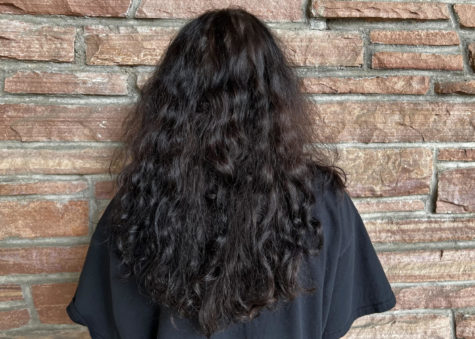Pirating’s Arr-Right!
Maybe this not-so victimless crime is less harmful than you think.

Did you know that 40% of BHS students admitted to pirating movies, games, DLC for games, or music in the past year? This statistic didn’t surprise me, because streaming services have made being an honest customer a bigger challenge than it should be.
According to observations made by Sandvine, since 2019 BitTorrent (a popular tool for pirating) usage has been on the rise since 2018 after declining since 2012. With more streaming services available than ever before, streaming specific content should be easier than ever. With a wide array of options for the consumer, the original players such as Netflix should be fighting other companies for customers. More streaming platforms has not translated into a competitive market, which has turned many innocent consumers into internet pirates. The wide array of services such as Hulu, Disney+, HBO Max, Peacock, Fox, and yes, Netflix, are a bunch of big companies in a trench coat pretending to be a competitive market.
Our current system is not a competitive market due to companies’ ability to purchase exclusivity rights on the show and then legally block anybody else from showing the show. When a company like Netflix purchases the exclusive rights to stream a show, none of the competitors can compete at all, because doing so would be illegal. In today’s streaming scene, competition boils down to ‘Who has Breaking Bad right now?’. When a company like Disney decides to throw its hat into the ring, take all of its content from other services and show it exclusively on Disney+, a new ‘competitor’ does not appear. All that happens is a half-baked new streaming service appears and the rest suddenly gets way worse.
As we all lament, each of these streaming services costs around $7 to $18 depending on whether you’re willing to deal with ads or not. Those prices add up fast! Of course, you can share passwords, even though Netflix plans to ‘crackdown on password sharing beginning in 2023’ according to The Verge. If streaming services somehow successfully eliminate password sharing, every user will be expected to pay multiple subscription fees each month depending on what they want to watch. It’s not reasonable to ask these prices of someone who just wants to watch F.R.I.E.N.D.S! The consumer could boycott Netflix, demanding better from our red, content overlords. However, there’s nobody else who offers the ‘Netflix exclusives’ (content Netflix only produced half of, but you can only view on Netflix, and there’s no company that can legally provide an alternative.
Unless, there was a way, maybe not a legal way, but a way. This is what several consumers have thought to themselves and then acted on, evident by the rising usage of BitTorrent as of late. Boulder High Students may even have a cleaner slate than the rest of the world, with pirated video material getting over 230 billion views a year, and more than 80% of them being attributed to illegal streaming services.
Pirating isn’t really arr-right though, with 70,000 jobs being lost due to music piracy alone, and digital video piracy costing the US economy between $29.2 and $71 billion each year. However, many consumers don’t have a choice due to financial factors, or even cases in which the show’s exclusivity rights have been bought by a company only to be dropped off the platform while it’s still illegal to show anywhere else.
As long as the risk of being caught pirating is less of an inconvenience than acquiring the shows legally through streaming, pirating shows isn’t going to stop. I propose that not only third-party shows made independently be shown on multiple platforms but most first-party ‘original’ content as well. If streaming services were really competing, they would be competing with each other’s features, price, and convenience, and not who has which shows. On the surface, it seems like the originals should be exclusive, but consumers will want to watch these originals at some point and be forced to either pay for ten services or boot up their preferred method of pirating.
Streamers aren’t regulated in the United States, so don’t expect the government to save us. What it will take is this system no longer being profitable for companies to change anything. Not only have people been fed up with these companies, and deciding streaming content is more trouble than it’s worth, a lot of these ex-customers are pirating now. Bittersweetly, the company that’s taken the greatest hit from this is the company that started it all, Netflix. In April, Netflix reported losing 200,000 subscribers in the first quarter of 2022, the biggest loss in over a decade. While Apple has its thousand-dollar phones keeping it afloat, Disney has park, movie and merchandise revenue, and Amazon controlling the world, other companies don’t have to do something as drastic as rolling out a $6.99 ‘with ads’ subscription. However, streaming is Netflix’s only source of revenue, and with not a lot of these series selling a lot of merchandise, Netflix gets its money from subscriptions.
So don’t pirate content from the internet! I legally have to say that. However, if you want to use the most convenient form of boycotting streaming services that mistreat you as a consumer, don’t feel so guilty.

A writer and illustrator for The Owl, Jane has many strong opinions that are most acceptably expressed in cartoon form. A senior at Boulder High School, Jane spends the majority of her time at school reading books that were not assigned and ignoring the ones that are. Her interests pursued in school are art, computer science, and eating lunch. Outside of school, Jane scoops ice cream at Sweet Cow North Boulder, is a single mother of two guinea pigs, a part-time cryptid, and a member of Christian Moms Against Rap Music. Jane absolutely cannot get behind purple grapes due to the fact that her ex-youngest son, Milo (2020-2021) perished to one. She is a green grape lover and as with many other topics,...

